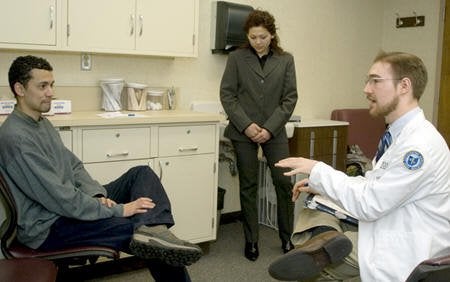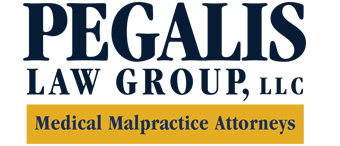-
A Look at Hospital-Acquired Infections
Medical malpractice lawyers know all too well the serious consequences of poor sanitation in hospitals. In fact, hospital-acquired infections are a leading cause of re-admittance to hospitals. Some of those infections are spread with improperly cleaned medical equipment that is reused from one patient to the next. Hospitals are expected to follow strict sterilization procedures as determined by the manufacturer, but sometimes surgical instruments simply aren’t cleaned as effectively as they ought to be.
 In some cases, the hospital might not be the only entity responsible for a patient’s infection. If the hospital did follow sterilization protocols, the responsibility may lie with the manufacturer. Some medical instruments could be found to be defective in design if there are so many complex components that the sterilization guidelines are ineffective.
In some cases, the hospital might not be the only entity responsible for a patient’s infection. If the hospital did follow sterilization protocols, the responsibility may lie with the manufacturer. Some medical instruments could be found to be defective in design if there are so many complex components that the sterilization guidelines are ineffective. If you feel that a hospital-acquired infection may be attributable to medical malpractice, you’re invited to connect with the team at Pegalis & Erickson, LLC at (516) 684-2900. At our malpractice law firm on Long Island, New York, our experienced medical negligence lawyers will thoroughly investigate your case.
-
Should You Take Legal Action Against Your Medical Provider?
 Patients place considerable trust in their doctors, specialists, and nurses. Although healthcare providers are highly trained and the medical industry is tightly regulated, countless medical mistakes occur every year. Medical malpractice lawyers are dedicated individuals who seek to hold negligent healthcare providers accountable for their actions. However, the decision to take legal action against a doctor should not be taken lightly. If you’re a patient who has been harmed, you can count on your medical malpractice attorney to provide the sound legal guidance you need to make a decision.
Patients place considerable trust in their doctors, specialists, and nurses. Although healthcare providers are highly trained and the medical industry is tightly regulated, countless medical mistakes occur every year. Medical malpractice lawyers are dedicated individuals who seek to hold negligent healthcare providers accountable for their actions. However, the decision to take legal action against a doctor should not be taken lightly. If you’re a patient who has been harmed, you can count on your medical malpractice attorney to provide the sound legal guidance you need to make a decision. Getting a Second Opinion
Sometimes, medical treatments simply don’t work as well as a patient hopes they will. A poor health outcome doesn’t automatically mean that the doctor was negligent, but it is a good idea to be a proactive patient by seeking a second opinion from another medical provider. Be sure to have your medical records transferred to the second provider’s office. If you have any test results or imaging scans, bring those with you to your appointment. Plan to ask plenty of questions and take notes about whether the diagnosis you originally received might have been inaccurate or whether the treatment was inappropriate.Establishing the Elements of Medical Malpractice
If you have suffered a harmful, unanticipated outcome after medical treatment, it may be time to consult a lawyer about possible legal action. Your attorney will review your case, including your medical records, to determine if all of the elements of medical malpractice are present. These elements are:- A doctor-patient relationship existed.
- Your doctor gave you sub-standard care.
- The sub-standard care caused your injuries.
- You sustained damages because of the doctor’s negligence.
Understanding the Legal Proceedings
If your lawyer finds that your case has the basis for a lawsuit, it’s time to decide if you wish to move forward. For many patients, legal action allows them to pay their medical bills and meet their future care needs. But it’s important to understand that not all lawsuits are successful. Hiring the right medical malpractice attorney can make all the difference.At Pegalis & Erickson, LLC, we understand how difficult it can be to make legal decisions in the aftermath of a major injury or illness. Our medical malpractice attorneys on Long Island, New York offer effective legal advocacy services that can help your family move forward. Call us at (516) 684-2900 today to request a free case review.
-
How to be a Proactive Patient
Have you ever left a doctor’s appointment feeling more confused than you did when you arrived at the clinic? Many Americans experience this, and unfortunately, it can sometimes lead to health consequences such as taking medications improperly. Health literacy is a crucial skill. It refers to the ability to understand medical information and to use this knowledge to make informed decisions for one’s wellness. A health literate patient may also be more likely to recognize possible acts of medical negligence or improper care when they occur.
 It isn’t necessary to go to medical school to understand basic health information. Try following a few simple tips, such as asking your doctor for clarification when there is something you don’t understand. Bring a list of questions to your appointment and take notes during it. If English is not your first language, consider bringing a family member or close friend who speaks English fluently.
It isn’t necessary to go to medical school to understand basic health information. Try following a few simple tips, such as asking your doctor for clarification when there is something you don’t understand. Bring a list of questions to your appointment and take notes during it. If English is not your first language, consider bringing a family member or close friend who speaks English fluently. Pegalis & Erickson, LLC is a team of experienced medical malpractice attorneys in Long Island, New York that is dedicated to advocating for the legal rights of families affected by birth injuries, wrongful death, and other acts of medical negligence. We invite patients to call our office at (516) 684-2900 and let us know how we can help.
-
Heart Health and Early Detection
Did you know that February is American Heart Month? This important public awareness campaign reminds families that heart disease can affect anyone. In fact, many people have serious heart diseases without realizing it. If it’s been a while since you’ve had a medical exam, consider making an appointment to talk to your doctor about your heart health. Remember that just like heart disease, medical negligence can also affect any patient. Don’t hesitate to seek a second opinion.
 Screening Tests
Screening Tests
When heart disease is left untreated, additional complications can develop. Not all types of heart disease cause noticeable symptoms. High blood pressure, for example, is known as the “silent killer.” This is why health screenings are so important. To support heart health, it’s recommended that patients keep track of their blood pressure, body mass index (BMI), cholesterol levels, and blood glucose levels.Symptoms to Know
Not all cardiac events cause obvious symptoms like crushing chest pain. In fact, many patients suffer a heart attack without realizing it. A heart attack can be subtle, causing symptoms such as fatigue, dizziness, and abdominal pain. It’s important to be aware of any unusual changes in your health and to bring these issues to the attention of your doctor. Additionally, be mindful of potential problems in the ER. Some patients go to the ER complaining of symptoms of a heart attack and they are told that they are too young or otherwise don’t fit the profile of a typical heart attack patient. If an ER doctor refuses to evaluate you for a cardiac complaint despite your symptoms, seek a second opinion immediately.The medical negligence lawyers of Pegalis & Erickson, LLC have successfully advocated on behalf of families affected by wrongful death due to the misdiagnosis of cardiac events. If your family has been affected by a wrongful death that occurred in the Long Island, New York area, you’re invited to call us at (516) 684-2900. We’re committed to putting the needs of patients first.
-
Keeping Track of Your Medical Records
 Managing your medical records is important not only to ensure your doctors have the information they need to provide you with proper care but also so that you can keep track of your medical history and the treatments being provided to you. Being an informed medical care consumer can save your life! You can manage your records both on and offline every time you see a provider.
Managing your medical records is important not only to ensure your doctors have the information they need to provide you with proper care but also so that you can keep track of your medical history and the treatments being provided to you. Being an informed medical care consumer can save your life! You can manage your records both on and offline every time you see a provider. Start with creating a list of your current medications and updating it every time your dose is changed or you stop and start a medicine. A log of your symptoms will help you have more productive doctor appointments and will ensure you have proof of when symptoms began. Keep visit summaries from your physician visits and make your own notes about each appointment. Research not only the doctors you are seeing, but also the hospitals they are affiliated with, to ensure that you are seeing the best health care providers for your particular conditions. There are many official websites maintained by US state departments of health which give background informaton on doctors, hospitals and other medical providers.
The attorneys at Pegalis & Erickson, LLC can help to assess whether the medical care you received departed from the appropriate standards of care. If you believe you the care you received was not proper call us at (516) 684-2900.
-
Teaching Your Kids About the Importance of Handwashing
Handwashing is a significant issue in medical malpractice cases. If your case involves an infection, one of the first things a medical malpractice lawyer will ask you is if you saw your doctor wash his or her hands. However, handwashing doesn’t just matter in the medical setting. Washing your hands routinely daily is one of the most effective ways you can prevent the spread of infection. It’s even more important to teach your kids the importance of handwashing, especially at school, where germs run rampant. December 4-10 is Handwashing Awareness Week—the perfect time to focus on teaching your kids the importance of washing their hands. This information will help you get the point across.
 Teach the 4 Principles of Hand Awareness
Teach the 4 Principles of Hand Awareness
The 4 Principles of Hand Awareness has been accepted by the American Medical Association and the American Academy of Family Physicians as the gold standard for keeping hands clean. By teaching these principles to your kids, you will equip them with everything they need to keep their hands germ-free. The first principle is to wash hands any time they are dirty and before eating. The second principle is to never cough into your hands, and the third principle is to never sneeze into your hands. The fourth principle is to avoid putting fingers in the nose, eyes, or mouth. Following these rules will reduce your kids’ chances of picking up a communicable infection that could be avoided.Lead by Example
Your kids learn their handwashing behavior from you. Be a model of good habits by following the 4 Principles of Hand Awareness yourself. Cough and sneeze into your elbow and always wash your hands before preparing food and before eating. When washing your hands is a habit for you, your kids are sure to pick up on it.At Pegalis & Erickson, we’re here to help when a medical mistake, like failing to wash hands, leads to a serious health problem. When you need a medical malpractice attorney on Long Island for birth trauma, medical negligence, or another medical injury, please call (516) 684-2900.
-
A Closer Look at the T-Zone
 You may not have heard of it, but the T-Zone plays a central role in your ability to fight infection. When you touch an area in the T-Zone, the bacteria on your hands is easily transferred and can trigger an infection. The T-Zone is so important that some experts are pushing for medical personnel to be trained in avoiding the T-Zone to reduce their chances of contracting an infection and passing it along to patients.
You may not have heard of it, but the T-Zone plays a central role in your ability to fight infection. When you touch an area in the T-Zone, the bacteria on your hands is easily transferred and can trigger an infection. The T-Zone is so important that some experts are pushing for medical personnel to be trained in avoiding the T-Zone to reduce their chances of contracting an infection and passing it along to patients. The T-Zone consists of the eyes, nose, and mouth. These areas contain membranes that are easily breached by bacteria and they are often the gateway for infection. By not touching these areas with dirty hands, you can reduce the risk of infection. Avoiding the T-Zone can be especially important to medical workers, who have high levels of exposure to infectious bacteria.
Pegalis & Erickson, LLC represents people with a variety of medical negligence claims from hospital-acquired infections to birth injuries. If you need help with medical malpractice on Long Island, please call (516) 684-2900.
-
Are You Legally Entitled to Interpreter Services in Hospitals?
 During a stressful visit to the hospital, it’s often challenging for patients to keep track of their providers’ questions, instructions, and recommendations. It’s even more challenging, if not downright impossible, for people with limited to no English proficiency to participate in their own healthcare. This is why New York hospitals and all those receiving federal funding are legally required to provide interpreter services when they are needed to allow equal access to healthcare services. A violation of this requirement might constitute medical malpractice in the situation concerning informed consent to treatment.
During a stressful visit to the hospital, it’s often challenging for patients to keep track of their providers’ questions, instructions, and recommendations. It’s even more challenging, if not downright impossible, for people with limited to no English proficiency to participate in their own healthcare. This is why New York hospitals and all those receiving federal funding are legally required to provide interpreter services when they are needed to allow equal access to healthcare services. A violation of this requirement might constitute medical malpractice in the situation concerning informed consent to treatment. Some states have also passed legislation to ensure all patients’ right to understand and participate in their own healthcare. California leads the nation with the number of these laws on the books. But unfortunately, many physicians are still unfamiliar with the mandate to provide interpreter services and language access can be implemented differently from hospital to hospital.
The medical negligence lawyers of Pegalis & Erickson, LLC handle a wide range of medical malpractice cases, including emergency room errors, birth trauma, wrongful death, and medication errors. Patients are invited to call (516) 684-2900 to speak with an attorney at our medical malpractice law firm in New York.
-
What Is Informed Consent?
Legally and ethically, patients have the right to receive sufficient information about a medical treatment to be fully informed when they make a healthcare decision. Informed consent refers to the communication between a patient and the physician that leads to the patient’s agreement to have a particular medical intervention. A breach of informed consent may constitute medical malpractice. If you feel you may have a medical malpractice case, you have the right to consult medical negligence lawyers about your situation.
 There are three main components of informed consent. Patients must have received appropriate, accurate information about their medical conditions and treatment options. They must understand this information. Lastly, they must be able to make a healthcare decision and give their consent for the treatment, based on the information provided by their healthcare provider
There are three main components of informed consent. Patients must have received appropriate, accurate information about their medical conditions and treatment options. They must understand this information. Lastly, they must be able to make a healthcare decision and give their consent for the treatment, based on the information provided by their healthcare provider Over the years, Pegalis & Erickson, LLC has developed a sterling reputation for providing compassionate, personalized legal services for patients. You can schedule a one-on-one consult with a medical malpractice lawyer in Long Island, New York by calling (516) 684-2900.
-
Zika Virus Symptoms and Your Patient Rights
UPDATE: September 20, 2016
A new study noted in the Journal of the American Medical Association (JAMA) reports some people infected with Zika develop conjunctivitis, an eye infection common known as “pink eye.” Although the Zika infection had been identified in urine, semen, saliva and breast milk, the study noted Chinese travelers who had been infected in Venezuela were found to have the virus from eye swabs five to seven days after symptoms occurred.UPDATE: September 15, 2016
On September 7, The World Health Organization updated its assessment of the Zika virus as a cause of congenital brain abnormalities in babies and Guillain-Barre syndrome in adults, after considering months of research into the mosquito-borne disease.UPDATE: August 19, 2016
The World Health Organization and the Centers for Disease Control and Prevention currently recommend that men who have had symptoms of Zika not attempt to father a child for six months after their illness. They also suggest that men who have been ill practice safe sex or abstinence if their partner is pregnant.Since 2015, articles about the “new” Zika virus and the potential spread of the virus worldwide to some 30 countries have been highlighted in the news. Scientists are researching how and why a virus first identified nearly 70 years ago as benign, could now pose such a grave risk, most especially to pregnant women, women of child-bearing age, and men who may be infected and impregnate women. To date there is no vaccine or treatment for Zika. Due to these concerns, it is urged that everyone, especially women of child-bearing age, be proactive in this regard and not wait until symptoms appear. Everyone should avoid bug bites by using insect repellents, removing any and all standing water, and scrubbing with soap any areas that mosquitoes eggs could have been laid. Currently men who have symptoms and have contracted the Zika virus have been recommended to ensure they do not impregnate women for at least a few months.

Common Zika Virus symptoms are fever, rash, joint pain, and red eyes, although some infected people do not have any Zika Virus symptoms. Zika Virus Disease is thought to be spread to people through the bite of infected mosquitoes, and through sexual transmission. Mosquitoes that spread Zika are aggressive daytime and nighttime biters. Zika Virus infection in pregnant women has recently been declared a definite cause of microcephaly. That condition causes babies to be born with smaller heads and major developmental challenges that are potentially lifelong. The virus is also associated with other severe fetal brain defects, and has also been linked to Guillain-Barre syndrome, an autoimmune disorder that can cause paralysis. Experts have begun calling the host of conditions linked to the virus in babies, Congenital Zika Syndrome, as recently some babies born with disabilities are more severe than in textbook microcephaly cases.
Of the more than 3,000 U.S. pregnant women travelers tested for Zika so far this year, coming from afflicted areas, a full 28% of them had Zika, and most, but not all, had rash, fever or red eyes. We believe that women who are pregnant or planning to become pregnant should talk with your doctors about your risks in general of having or contracting the disease, and about travel to currently-known Zika infested areas, including the potential for the spread in the southern gulf states of the United States.
Here in the U.S. preparations have begun for the possible spread of Zika this summer, particularly in the southern Gulf States. The federal government is now offering all US states funding to boost their prevention plans. US health officials predict large outbreaks in the U.S. are not as likely because of wide use of air conditioning and window screens. However, we want to urge all pregnant women and women of child-bearing age to take every precaution possible to avoid mosquito bites, sexual transmission of the disease, and to carefully consider travel to known areas of wide-spread Zika virus.
The CDC recommends that pregnant women and women trying to get pregnant or who may wish to become pregnant:
- Should not travel to any area with Zika.
- Women that must travel to, or live in an area with Zika virus, should talk with healthcare providers and strictly follow steps to prevent mosquito bites
- Women with a male partner(s) who lives in, or has traveled to an area with Zika, should abstain or properly use condoms every time they have sex
- Before women or male partner(s) travel, talk to healthcare providers about plans to become pregnant and the risk of Zika virus infection
- Women and male partner(s) should strictly follow steps to prevent mosquito bites
It was merely months ago that health officials thought the Zika virus was not transmitted through sexual activity. Now, the CDC has an excellent video available to the public about preventing the Zika virus, based on the currently known methods of transmission, including sexual transmission. Previously, microcephaly was considered a rare birth defect. Today doctors working with infants in South America with Zika virus say some may never learn to talk or walk, will have trouble seeing, could develop epilepsy. Officials indicate that there may be a spectrum of problems with a baby’s health that don’t show up as microcephaly.
If you have medical-legal concerns regarding your pregnancy or your baby’s health, please don’t hesitate in contacting our experienced New York medical malpractice law firm for a free consultation to ensure your rights are protected. Call Pegalis and Erickson at (516) 684-2900. Or email us at info@pegalisanderickson.com. ATTORNEY ADVERTISING
Recent Posts
Popular Posts
categories
- Uncategorized
- Infographic
- Patient Safety
- Patient Health
- Stillbirth
- Birth Injuries
- Medical Malpractice
- Medical Negligence
- Event
- Erb's Palsy
- Injury
- ER
- Video
- Cancer Misdiagnosis
- Medication Errors
- Cerebral Palsy
- Medical Negligence Lawyer
- Anesthesia Injuries
- Brachial Plexus
- Prostate Cancer
- About Us
- Men's Health
- Skin Cancer
- Breast Cancer
- Misdiagnosis
